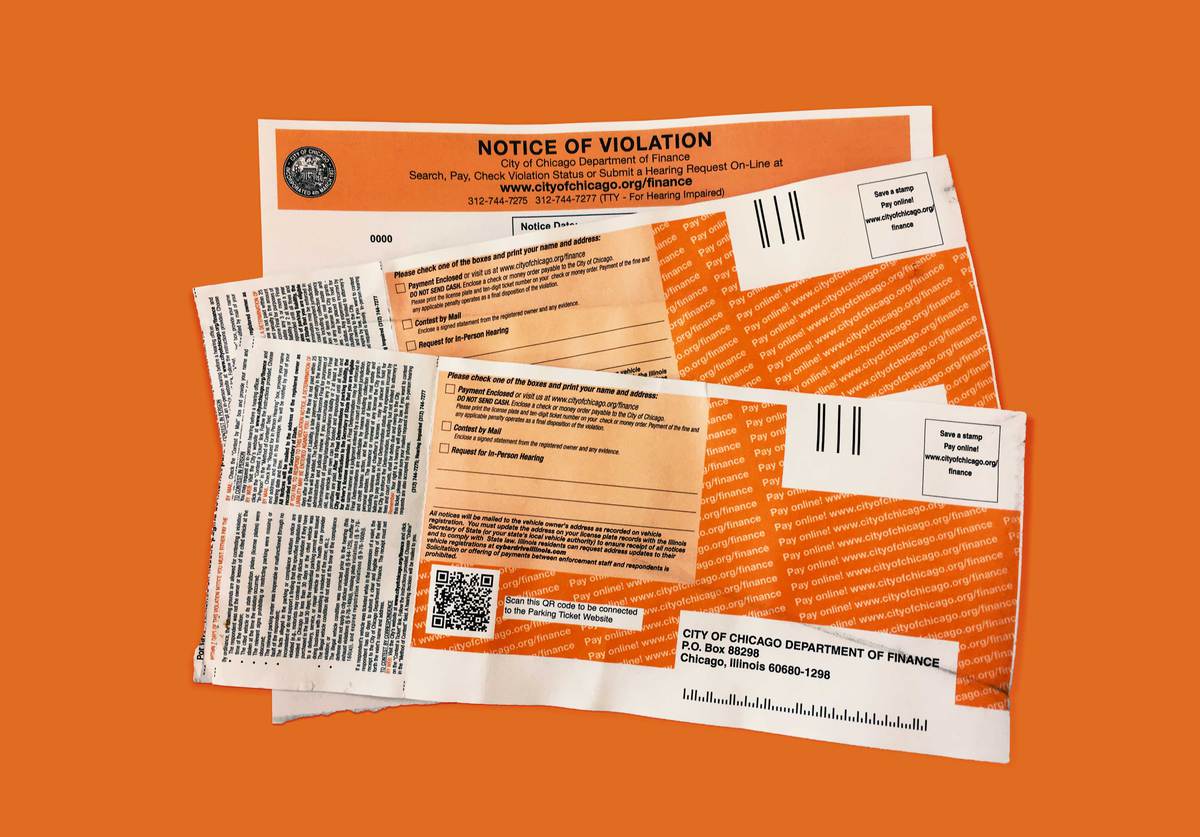BY LAST SUMMER, Laqueanda Reneau felt like she had finally gotten her life on track.
A single mother who had gotten pregnant in high school, she supported her family with a series of jobs at coffee shops, restaurants and clothing stores until she landed a position she loved as a community organizer on Chicago’s West Side. At the same time, she was working her way toward a degree in public health at DePaul University.
But one large barrier stood in her way: $6,700 in unpaid tickets, late fines and impound fees.
She had begun racking up the ticket debt five years earlier, in 2012, after a neighbor who saw her riding the bus late at night with her infant son sold her her first car, a used Toyota Camry, for a few hundred dollars. She was grateful for the shorter commute to work but unprepared for the extra costs of owning a car in Chicago.
That year alone, Reneau got 15 tickets, including seven $200 citations for not having a city sticker. Later, she received a dozen tickets for license plate violations on another used car that couldn’t pass emissions testing, a state requirement to renew her plates.
“Those tickets have followed me until this freaking day,” said Reneau, who is 25.
Because of the unpaid tickets, the city garnished her state tax refunds. Her car was impounded and she couldn’t pay for its release. Her driver’s license was suspended. Unable to come up with $1,000 to enter a city payment plan, Reneau did what thousands of Chicago drivers do each year: She turned to Chapter 13 bankruptcy and its promise of debt forgiveness.
“I know I’m putting a Band-Aid on the problem,” she said. “But right now, my immediate need is to get a car so I can get to work and get my son to school.”
For Chicago’s working poor, and particularly for African Americans, a single unpaid parking or automated traffic camera ticket can quickly spiral out of control and threaten their livelihoods. Bankruptcy offers a temporary reprieve, giving these motorists the chance to resume driving without fear of getting pulled over or losing their vehicles to the city pound.
The problem has gotten worse over the past decade, ProPublica Illinois found in an analysis of bankruptcies filed in the Northern District of Illinois, which includes Chicago and its suburbs.
In 2007, an estimated 1,000 Chapter 13 bankruptcies included debts to the city, usually for unpaid tickets, with the median amount claimed around $1,500 per case. By last year, the number of cases surpassed 10,000, with the typical debt to the city around $3,900. Though the numbers of tickets issued did not rise during that time, the city increased the costs of fines, expanded its traffic camera program and sought more license suspensions.
The result: more debt due to tickets.
Legal experts say what’s happening in Chicago’s bankruptcy courts is unique. Parking, traffic and vehicle compliance tickets prompt so many bankruptcies the court here leads the nation in Chapter 13 filings.
It’s a problem fueled both by the city’s increasingly aggressive ticketing to boost revenue — tickets brought in nearly $264 million in 2016, or about 7 percent of the city’s $3.6 billion operating budget — and a handful of law firms that pitch bankruptcy protection as a cheap solution to drivers’ woes.
Advocates for the poor say the bankruptcy statistics are symptoms of a broken city system that unfairly burdens those least able to afford tickets, much less late fees and other penalties. Motorists with crushing ticket debt who want to get back behind the wheel are stuck choosing between a city payment plan they often can’t afford or a bankruptcy plan that’s cheaper to enter but likely to fail.
When bankruptcy cases are dismissed, drivers risk losing their cars and licenses again, setting up a cycle of more debt and potentially more bankruptcies.
“If you’re a city government that has a policy of basically balancing the budget by issuing huge numbers of traffic tickets, you have to expect this response,” said John Rao, an attorney who specializes in bankruptcy at the nonprofit National Consumer Law Center. “There’s obviously a market for consumers who are in need of relief, and while it’s not the perfect form of relief, the other options aren’t that great either.”
Debt That Lasts Forever
TO Read The Whole Article Click Link:
https://features.propublica.org/driven-into-debt/chicago-ticket-debt-bankruptcy/







